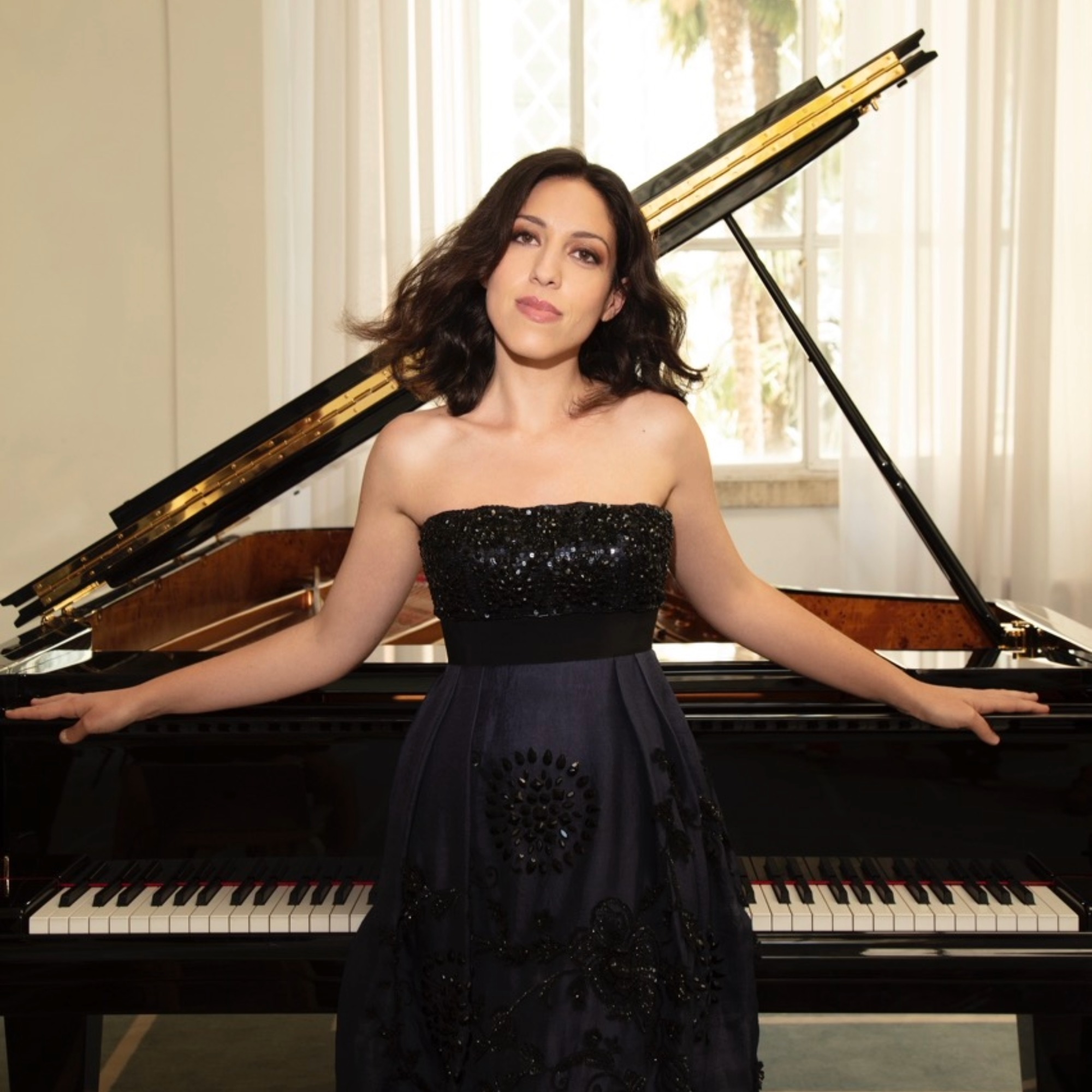Thursday, October 2nd, 8:30 PM at Auditorium Giovanni Agnelli
The opening night of the Concerti del Lingotto Season is a tribute to the German Romantic repertoire. On Thursday, October 2nd, at 8:30 PM, the Auditorium Giovanni Agnelli will host the double debut of Beatrice Rana and Riccardo Minasi at Lingotto Musica. Accompanied by the Deutsche Kammerphilharmonie Bremen, they close their tour between Italy and Germany. The evening is organized in collaboration with Fondazione Renzo Giubergia and Ersel Banca Privata as Event Partners and is dedicated to the memory of Renzo Giubergia on the centenary of his birth.
The piano star Beatrice Rana
Regularly on the concert schedules of major orchestras, Beatrice Rana won the Second Prize and the Audience Award at Van Cliburn Competition in Fort Worth, at the young age of 22. In 2016 she went on tour all around the world playing Bach’s Goldberg Variations: the subsequent 2017 recording earned her “Young Artist of the Year” at Gramophone Awards and “Discovery of the Year” at Edison Awards. As an exclusive artist for Warner Classics, she has released six albums and received mentions like “Editor’s Choice” from Gramophone magazine and “Newcomer of the Year” from BBC Music Magazine. She is the artistic director of the “Classiche Forme” Festival, founded by her in 2017.
Riccardo Minasi lead the Deutsche Kammerphilharmonie Bremen
As an expert violinist interpreter of early music, Riccardo Minasi has long had a celebrated career as a conductor. He has led, among many others, major ensembles such as the Berlin Philharmonic, the Royal Concertgebouw Orchestra, and the Staatskapelle Dresden. As Principal Guest Conductor of Ensemble Resonanz at the Elbphilharmonie in Hamburg and Artistic Director of the Orchestra La Scintilla at the Zurich Opera, he also led the Mozarteum Orchestra of Salzburg from 2017 to 2023.
The program features three cornerstones of the German Romantic repertoire
The evening opens with the Overture from Carl Maria von Weber’s Der Freischütz. Its debut in 1821 marked the birth of German national opera, which came from the great heritage of German folk tales. In the Overture, the main drama themes are masterfully condensed into a short space, from the Adagio to the final hymn.
Beethoven’s Piano Concerto No. 3 in C minor, Op. 37 follows. With the composer on the podium, on his first performance in Wien in 1804 the solo part was played by Ferdinand Ries. A turning point between youth and maturity, this piece is unique for its C minor tonality.
The evening closes with Johannes Brahms’s Symphony No. 4 in E minor, Op. 98, composed during the 1884-1885 summer holidays in Mürzzuschlag, Styria. With his Fourth Symphony Brahms concludes the Romantic trajectory and opens up new scenarios related to the symphonic form, now expanded in both content and grammatical expression.
